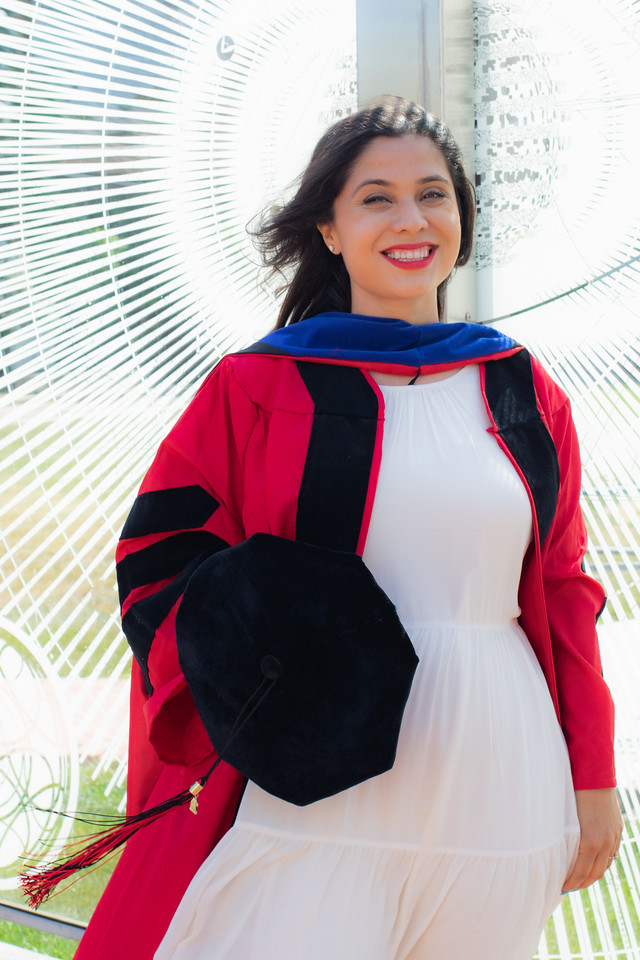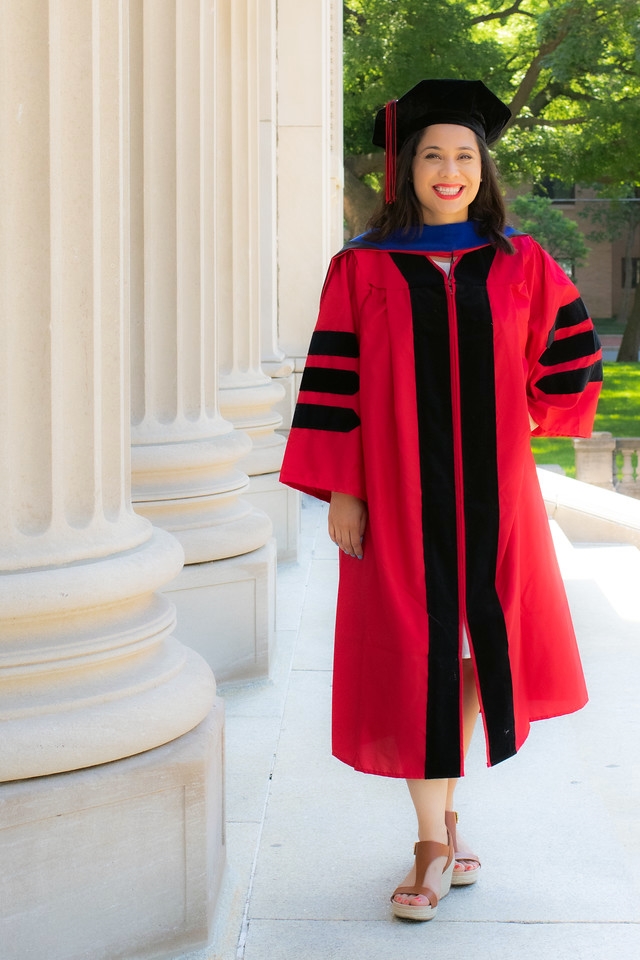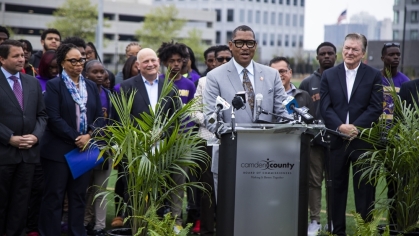Doctoral Student Serves Camden Community, Addressing Childhood Health and Education Inequities
For four years, Mary Mitsdarffer worked as a community health practitioner in Camden for The Food Trust, a national nonprofit specializing in food access, nutrition education, and youth leadership development.

As a health practitioner, Mitsdarffer grew tired of intervention strategies in public health for children that are often devised through the lenses of adults.
So when the time came to explore these issues further on an academic level, the Rutgers University–Camden doctoral student didn’t have to look too far.
“That was the deciding factor of why I chose Rutgers–Camden,” says Mitsdarffer, who graduates this May with a Ph.D. in childhood studies. “Working in the Camden community for so long, it was important to me to be able to learn and stay connected to the community.”
Over the course of her doctoral work, the West Philadelphia resident would provide further context for some of the insights – and questions – that she had on the job. She recalls that, as a health practitioner, she had worked on a collective impact grant – wherein various organizations are brought together to address specific problems – for the Campbell Soup Foundation.
With the group focused on food access and obesity in the Camden community, Mitsdarffer worked at 10 different school sites in the Camden school district, leading nutrition education for students, as well as teacher training and cooking lessons. She also worked with youth leaders in the area.
During that time, she repeatedly found that when one works in an area dealing with structural inequity and health disparities, there is often a narrative that children are set up to fail. However, she saw nothing but bright futures for the children with whom she worked.
“The kids that I worked with were amazing and fantastic, and reminded me a lot of kids I grew up with,” says Mitsdarffer, who earned a master’s degree in public health at the University of the Sciences. “I was really interested in this whole idea of how we thrive despite place-based disparities.”
Moreover, she says, intervention strategies in public health are often devised through the lenses of adults – essentially, what adults think is going on. As a health practitioner, she grew tired of that approach.

“That was the deciding factor of why I chose Rutgers–Camden. Working in the Camden community for so long, it was important to me to be able to learn and stay connected to the community.” – Mary Mitsdarffer
“I was really unsatisfied with saying, ‘Oh, no, their parents say this or that,’” she says. “We hardly ever ask the kids questions. It was really important to me to start learning about how to do research with adolescents and children more mindfully, as opposed to asking, ‘What do your parents think?’”
Mitsdarffer would stay connected to the Camden community throughout her studies via the New Jersey Health Initiatives, the state grant program of the Robert Wood Johnson Foundation based at Rutgers–Camden. She worked as a lead research assistant for the Next Generation Community Leaders Project, which developed youth leadership community health worker models in 11 different communities throughout New Jersey.
“The idea was asking how adults and adolescents can work collaboratively,” says Mitsdarffer. “How do you empower youth in a meaningful way through education, development, and projects that are much more than just volunteering for a day? We wanted to create projects that encourage lasting change, and empower youth to take ownership of their community.”
In addition to that work, Mitsdarffer’s dissertation looked at the presence of interior immigration enforcement policy in the United States and the impacts that it has on Latinx children’s educational outcomes. She essentially asks if children feel the effect of these policies, whether they are driven by the state or by U.S. Immigrations and Customs Enforcement (ICE).
She explains that, during the past several presidential administrations, there have been many new interior immigration policies and, as a Mexican American, she personally knows the stress that these policies can place on young people.
“It’s really hard to divorce yourself from politics; so much of what people research and do is driven by their life experiences,” says Mitsdarffer. “My dissertation is a passion project in terms of addressing the stress that I have felt for most of my life, and examining how such policies are potentially harmful toward documented and undocumented individuals living in the United States.”
She further acknowledges that she is primarily a quantitative researcher, which can prove difficult in centering the child’s voice – an imperative of the childhood studies discipline and a hallmark of Rutgers–Camden’s Ph.D. program. She thus used metrics such as school enrollment and standardized test scores in her dissertation work, positing that they represent a child’s voice or lived experience.

The West Philadelphia resident now plans to focus on interior immigration policies as they relate to infant health outcomes as part of her position as a postdoctoral research associate, working with the health justice collaborative in the Institute on Critical Race and Ethnic Studies at Lehigh University.
Mitsdarffer found that, when ICE is present through its 287(g) program’s partnerships with state and local law enforcement agencies, or the agency’s Secure Communities program, there is a significant decrease in Latinx enrollment in counties, meaning that children are relocating. She also discovered that, when omnibus immigration laws or state-originated laws that package three or more immigration policies together are present, children lose about a month of schooling in terms of English literacy arts achievement. “That’s huge because we know that, even if you have the best reading intervention program, you wouldn’t see that type of loss or gain,” she says.
She now plans to focus on these policies as they relate to infant health outcomes as part of her position as a postdoctoral research associate, working with the health justice collaborative in the Institute on Critical Race and Ethnic Studies at Lehigh University. She says the position will be “a mix of my favorite things,” working with a health research and action team – comprised of community members, context experts, clinicians, and local health and social service providers – focused on inclusion health.
Throughout her work and academic experiences, says Mitsdarffer, she has always been intent on staying “out of the ivory tower,” and doing the community work that makes her feel “alive.”
“When I am in the community, I am intent on not becoming an authority on what people should do, but rather listening and elevating their voices,” she says. “So often we don’t know how to listen, but when you can learn how to do that, it’s just the greatest feeling in the world.”
Ultimately, she hopes that there will come a day when her practice and scholarship aren’t needed at all.
“My job is to hope that someday I don’t have a job,” she says. “I hope that these issues are addressed in a meaningful way and don’t exist any longer.”


